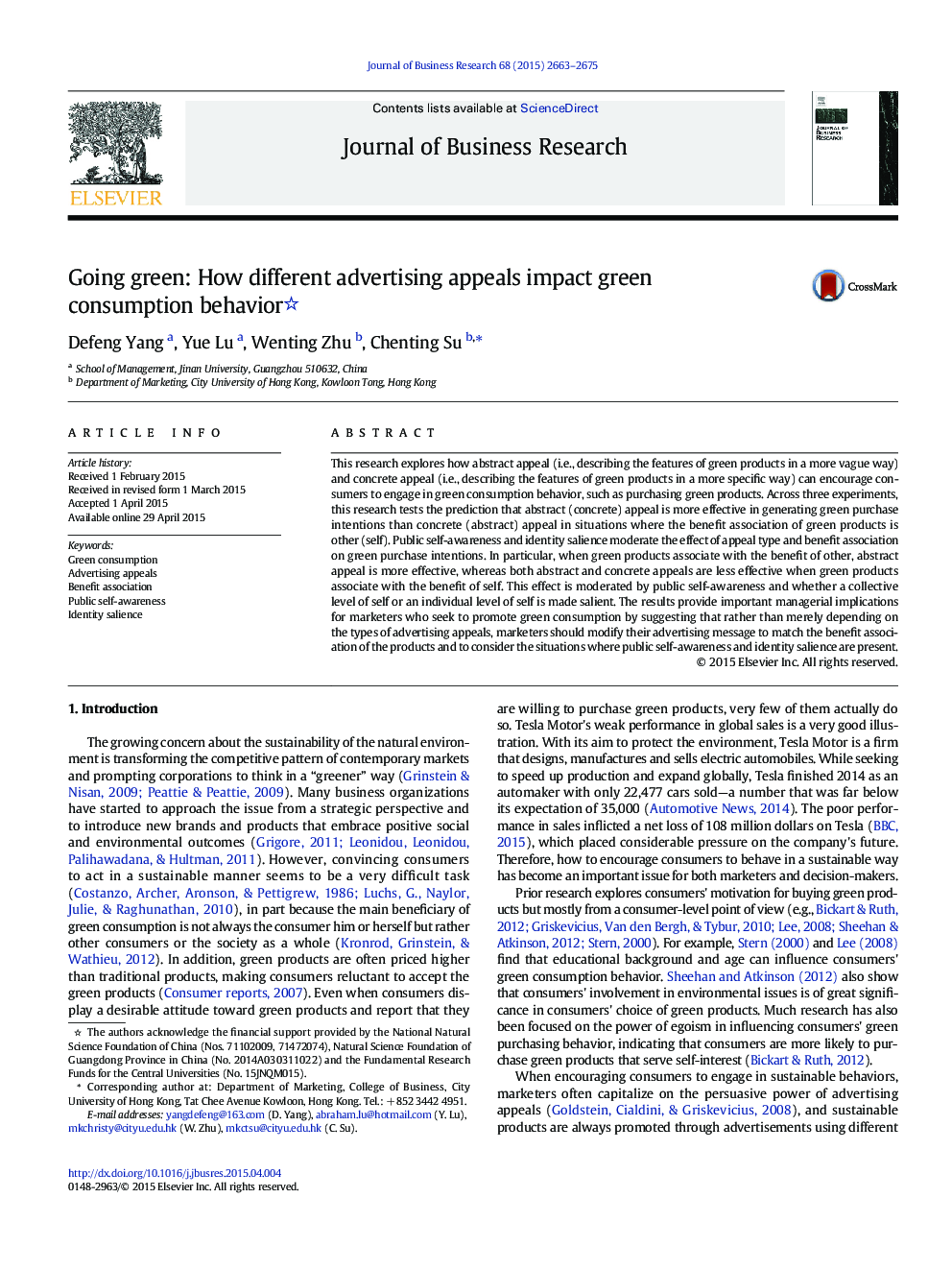| Article ID | Journal | Published Year | Pages | File Type |
|---|---|---|---|---|
| 1017063 | Journal of Business Research | 2015 | 13 Pages |
This research explores how abstract appeal (i.e., describing the features of green products in a more vague way) and concrete appeal (i.e., describing the features of green products in a more specific way) can encourage consumers to engage in green consumption behavior, such as purchasing green products. Across three experiments, this research tests the prediction that abstract (concrete) appeal is more effective in generating green purchase intentions than concrete (abstract) appeal in situations where the benefit association of green products is other (self). Public self-awareness and identity salience moderate the effect of appeal type and benefit association on green purchase intentions. In particular, when green products associate with the benefit of other, abstract appeal is more effective, whereas both abstract and concrete appeals are less effective when green products associate with the benefit of self. This effect is moderated by public self-awareness and whether a collective level of self or an individual level of self is made salient. The results provide important managerial implications for marketers who seek to promote green consumption by suggesting that rather than merely depending on the types of advertising appeals, marketers should modify their advertising message to match the benefit association of the products and to consider the situations where public self-awareness and identity salience are present.
